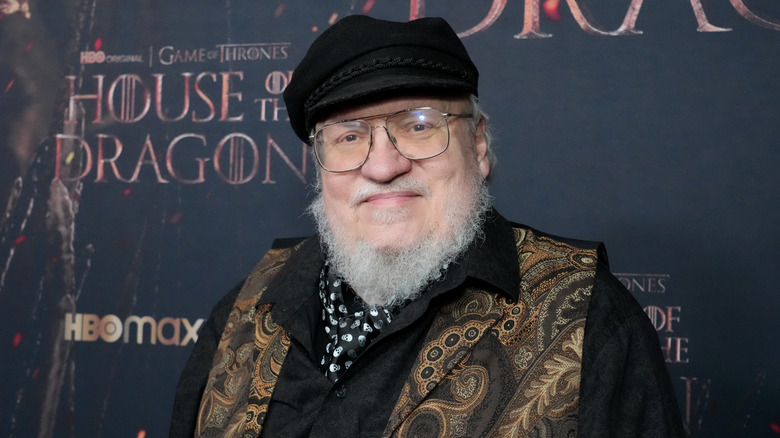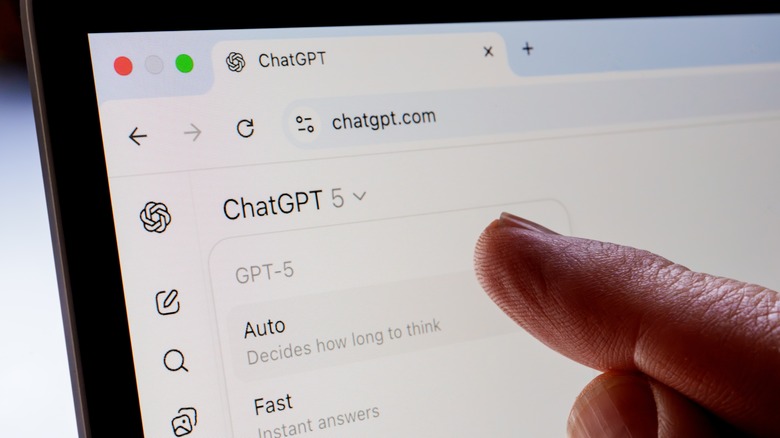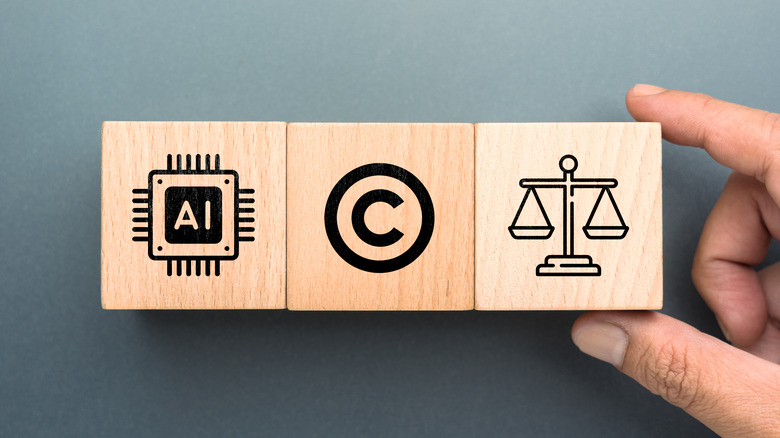George RR Martin's ChatGPT Lawsuit Could Change The Rules For AI Forever
Winter could be coming for the AI industry as a lawsuit against OpenAI moves forward in court. Filed by a group of authors in 2023, among them "Game of Thrones" author George R.R. Martin, the suit alleges that ChatGPT's training data and output constitute copyright infringement. It's far from a novel argument, but it is an obvious one, and it might finally be sticking in court.
Copyright law has already buckled under the weight of the internet, which has always displayed a penchant for remixing protected content. The cracks had already started showing back when teens were still posting GIFs from "Supernatural" on Tumblr, and generative AI has taken a jackhammer to those foundations, as it is capable of producing content itself. Three years after the public launch of ChatGPT, anyone can make a video of Mr. Rogers and Mr. T having a lightsaber fight on the Death Star. No one has come close to stopping the AI industry as it slurps up copyrighted content (and the economy) and belches out slop. Even AI coding has problems that are only getting worse.
But new developments in the authors' case signal that tech companies haven't won the copyright battle. A Federal judge has rejected OpenAI's motion to dismiss the lawsuit, allowing Martin and his fellow authors to make their case — and forcing OpenAI to do the same. What happens next could break the very foundations of the AI industry, or strike a mortal blow against copyright law as we know it.
ChatGPT might be an illegally huge Game of Thrones fan, rules judge
By all accounts, George R.R. Martin and his cohort of claimants are poised to strike a significant victory against OpenAI and ChatGPT — at least, unless the two parties agree on a settlement. On October 28, Judge Sidney Stein, the Senior Judge of the United States District Court for the Southern District of New York, rejected a motion by OpenAI's attorneys to dismiss the suit. Multiple suits by multiple groups of authors can now move forward as a consolidated effort. Several other high-profile authors are litigants, including Pulitzer winner Michael Chabon, MacArthur and National Book Award recipient Ta-Nehisi Coates, and Whiting Award winner Jia Tolentino. Visual artists filed their own suit last year against Stable Diffusion, which is separate.
Judge Stein arrived at his decision after comparing a summary of Martin's "A Song of Ice and Fire" generated by ChatGPT to the book itself. As reported by Publishers Weekly, the LLM had recreated the entire plot, introducing the cast of characters and capturing the overall tone of the novels while doing so. Business Insider also reported that, when asked for sequel ideas, the LLM's suggestions were similar enough to Martin's work for Stein not to rule out a potential copyright violation. "A reasonable jury could find that the allegedly infringing outputs are substantially similar to plaintiffs' works," he wrote in a ruling viewed by the outlet.
Copyright vs. the right to copy is at the heart of the case against OpenAI
The basis of the case authors have lodged against OpenAI and its partner Microsoft involves training data. Large language models like ChatGPT are fed as much high-quality text as possible to improve their performance. Books are core to those data sets, and authors allege that the training itself broke copyright law. That argument isn't as bulletproof as it seems — the way AI models work isn't so straightforward. But the plaintiffs have two other arguments that may bear more fruit.
The second argument is that, much like it is illegal to torrent pirated movies, the downloading of the books themselves was illegal, irrespective of what they were used for. This claim falls under a much more clearly defined application of the law. It revolves around so-called "shadow libraries," a term for large collections of books and articles owned by brokers who sell illegal access.
But the third argument, over the similarity of ChatGPT's generated output to copyrighted work, moved the case forward in this latest decision. There is a generous fair use exception to copyright law, under which a relatively small amount of content may be used transformatively — for instance, a movie critic showing a line of dialogue from a film as part of a review. OpenAI will almost certainly argue that its products fall under fair use, but that interpretation would radically widen the scope of what has until now been sheltered under the law. Crucially, use that harms the market for the original product is harder to prove as fair use, a legal hurdle other uses of AI have failed to clear in court.


